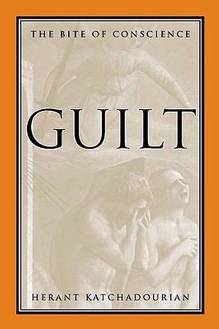Guilt: The Bite of Conscience
Katchadourian, Herant
Éditeur : STANFORD UNIVERSITY PRESS
ISBN papier: 9780804763615
Parution : 2010
Code produit : 1129374
Catégorisation :
Livres /
Sciences humaines /
Philosophie /
Philosophie
Formats disponibles
| Format | Qté. disp. | Prix* | Commander |
|---|---|---|---|
| Livre papier | En rupture de stock** |
Prix membre : 36,86 $ Prix non-membre : 40,95 $ |
*Les prix sont en dollars canadien. Taxes et frais de livraison en sus.
**Ce produits est en rupture de stock mais sera expédié dès qu'ils sera disponible.
Description
Guilt: The Bite of Conscience is the first book to study guilt from a wide variety of perspectives including those of psychology, psychiatry, psychoanalysis, evolutionary psychology, anthropology, six major religions (Judaism, Christianity, Islam, Hinduism, Buddhism, Confucianism), four key moral philosophers (Aristotle, Kant, John Stuart Mill, and Nietzsche), and the law. Katchadourian first explores the ways in which guilt functions within individual lives and intimate relationships, looking at behaviors that typically induce guilt in both historical and modern contexts. He then turns to the way the capacity for moral judgments develops within the individual lives and through evolutionary processes, taking up both normal and pathological (whether excessive or inadequate) manifestations of guilt. The second part of the book turns to the socio-cultural aspects of guilt. In what ways does religion deal with guilt? Does it compound it or help individuals to resolve it? How do the major religious traditions differ in their conceptions of guilt? Secular alternatives in dealing with guilt are considered in the light of the key moral philosophies that have exerted the most influence in Western cultures. Finally, Katchadourian addresses the ways in which society attempts to come to terms with guilt as culpability through the legal process. This personal work draws from, and integrates, material from extensive primary and secondary literature. It is a reliable guide to what scholars, investigators and clinicians have to say about the topic. Through the extensive use of literary and personal accounts, this book provides an intimate picture of what it is like to experience this universal emotion. While the book is not intended to be a self-help manual, each chapter addresses the issue of how to deal with guilt from a particular point of view. Written in clear and engaging prose, with a touch of humor, Guilt should appeal to a wide audience.























